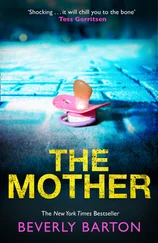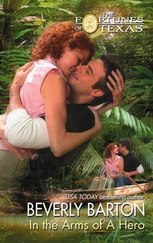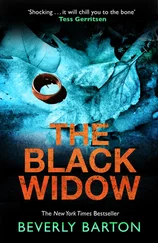“You’re a star, thanks,” she said, raising her hand for another taxi. Her phone rang again almost immediately.
“Kate, where the hell are you? We’ve got an interview with the ex-wife of that footballer. It’s up near Leeds, so get on the next train and I’ll e-mail you the background. Ring when you’re at the station.”
THIRTY-TWO
The Widow
WEDNESDAY, SEPTEMBER 17, 2008
Someone put the Herald through the door today, the day they accused Glen all over again, and he put it straight in the bin. I got it out and hid it away behind the bleach under the sink for later. We’d known it was coming because the Herald had been banging on the door the day before, shouting questions and pushing notes through the letter box. They said they were campaigning for a retrial so that Bella would get justice. “What about justice for me?” Glen said.
It’s a blow, but Tom phoned to say the paper will have to have deep pockets to pay the costs and, most importantly, they have no evidence. He said to “batten down the hatches,” whatever that means. “The Herald are coming at us with all guns blazing, but it is all just sensationalism and tittle-tattle,” he told Glen, who repeated it line by line to me. “He talks like it is a war,” I say, and then shut up. The wait will be worse than the reality, Tom predicts, and I hope he’s right.
“We’ve got to keep quiet, Jeanie,” Glen explains. “Tom will start legal proceedings against the paper, but he thinks we should go on a bit of a holiday—‘remove ourselves from the picture’—until this all blows over. I’ll go online and book something this morning.”
He hasn’t asked where I want to go and, to be honest, I don’t care. My little helpers are beginning to have less effect, and I feel so tired I could cry.
In the end he picks somewhere in France. In my other life, I would’ve been thrilled, but I’m not sure what I feel when he tells me he’s found a cottage in the countryside that’s miles from anywhere. “Our flight leaves at seven tomorrow morning, so we need to leave here at four, Jeanie. Let’s get packed up, and we’ll take our car. Don’t want a taxi driver tipping off the press.”
He knows so much, my Glen. Thank God I’ve got him to look after me.
At the airport, we keep our heads down and sunglasses on, and we wait until the queue is almost down to the last person before we head to the desk. The woman checking us in barely looks at us and sends our suitcase onto the conveyor belt before she’s managed to say, “Did you pack this bag yourself?” let alone waited to hear the answer.
I’d forgotten how much queuing there was in airports, and we are so stressed by the time we get to the gate that I am ready to go home to the press pack. “Come on, love,” Glen says, holding my hand as we walk to the plane. “Nearly there.”
At Bergerac, he goes to get the rental car while I wait for the bag, mesmerized by the passing luggage. I miss our case—it’s been so long since we used it, I have forgotten what color it is and have to wait until everyone else has heaved theirs off. I finally go out into the bright sunshine and spot Glen in a tiny red car. “Didn’t think it would be worth getting anything bigger,” he says. “We’re not going to do much driving, are we?”
Funny, but being on our own in France is different from being on our own at home. Without a routine, we don’t know what to say to each other. So we say nothing. The silence should be a rest from the constant noise and banging on our door at home, but it isn’t. It’s worse somehow. I take to going for long walks in the lanes and woods around the cottage while Glen sits on a sun lounger and reads detective novels. I could scream when I see what he’s packed. As if we hadn’t had enough of police investigations.
I decide to leave him with his perfect murders and sit on the other side of the patio with some magazines. I find myself looking at Glen, watching him and thinking about him. If he looks up and catches me, I pretend I am looking at something behind him. I am, I suppose.
I don’t really know what I am looking for. Some sign of something—his innocence, the toll taken by the ordeal, the real man, perhaps. I can’t really say.
The only time we leave the place is to drive to the nearest supermarket to get food and loo rolls. I can’t be bothered to shop for real meals. Finding the stuff to go into a spaghetti Bolognese is beyond me, so we eat bread and ham and cheese at lunchtime and a cold roast chicken and coleslaw or more ham in the evenings. We aren’t really hungry anyway. It is just something to push around our plates.
We’ve been here four days when I think I see someone walking along the lane at the bottom of the property. First person I’ve seen near the property. A car is an event.
I don’t think much of it, but the next morning there’s a man walking up the drive. “Glen,” I shout to him in the house. “There’s a bloke coming up.”
“Get in here, Jean,” he hisses and I hurry past him as he closes the door and begins drawing the curtains. We wait for the knock.
The Herald has found us. Found us and photographed us: “The kidnapper and his wife sunning themselves outside their exclusive hideaway in the Dordogne” while Dawn Elliott “desperately continues her search for her child.” Tom reads us the headlines the next day over the phone. “We’re only here because we’re being hounded, Tom,” I say. “And Glen has been cleared by the courts.”
“I know, Jean, but the papers have convened their own court. It won’t last long before they’ll be on to the next thing—they’re like children, easily distracted.” He says the Herald must have traced Glen’s credit card to find us.
“Are they allowed to do that?” I ask.
“No. But that doesn’t stop them.”
I put down the phone and begin packing. The villains again.
When we get home, they are waiting, and Glen rings Tom to talk about how to stop them from saying these things.
“It’s libel, Jeanie. Tom says we have to sue them—or threaten to sue them—or they’ll keep going, digging into our lives and putting us on the front page.”
I want it to stop, so I agree. Glen knows best.
It takes a while for the solicitors to write their letter. They have to say why the stories are all wrong, and that takes a bit of time. Glen and I go up to Holborn again, taking the same train I used to take when he was on trial. “Groundhog Day,” he says to me. He tries to keep my spirits up, and I love him for it.
The barrister isn’t a Charles Sanderson; he’s a real smooth character. I bet his wig isn’t falling apart. He looks rich, like he drives a sports car and has a country house, and his office is all shiny metal and glass. Libel is obviously the moneymaking end of the business. Wonder if Mr. Sanderson knows.
This one is all business. He’s as bad as the prosecutor, asking all the questions again and again. I squeeze Glen’s hand to show him I’m on his side, and he squeezes back.
The smoothy pushes and pushes on every detail.
“I have to test our case, Mr. Taylor, because this is basically a rerun of the Bella Elliott prosecution. That case was thrown out because of the police actions, but the Herald maintains you kidnapped the child. We say that is wrong and defamatory. However, the Herald will throw everything at you—from the case itself, and they can also use evidence they gathered that was not admissible in the criminal trial. Do you see?”
We must have looked a bit blank, because Tom began to explain it in simple language while the smoothy looked out at the view.
“They’ll have a lot of dirt, Glen. And they’ll throw all of it at you to get the libel jury on their side. We need to show that you’re innocent, Glen, to get the jury to find against the Herald .”
Читать дальше












